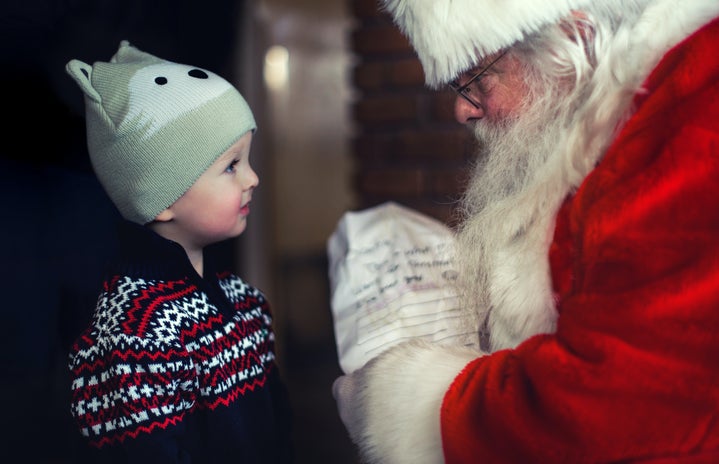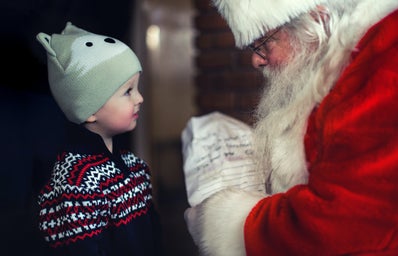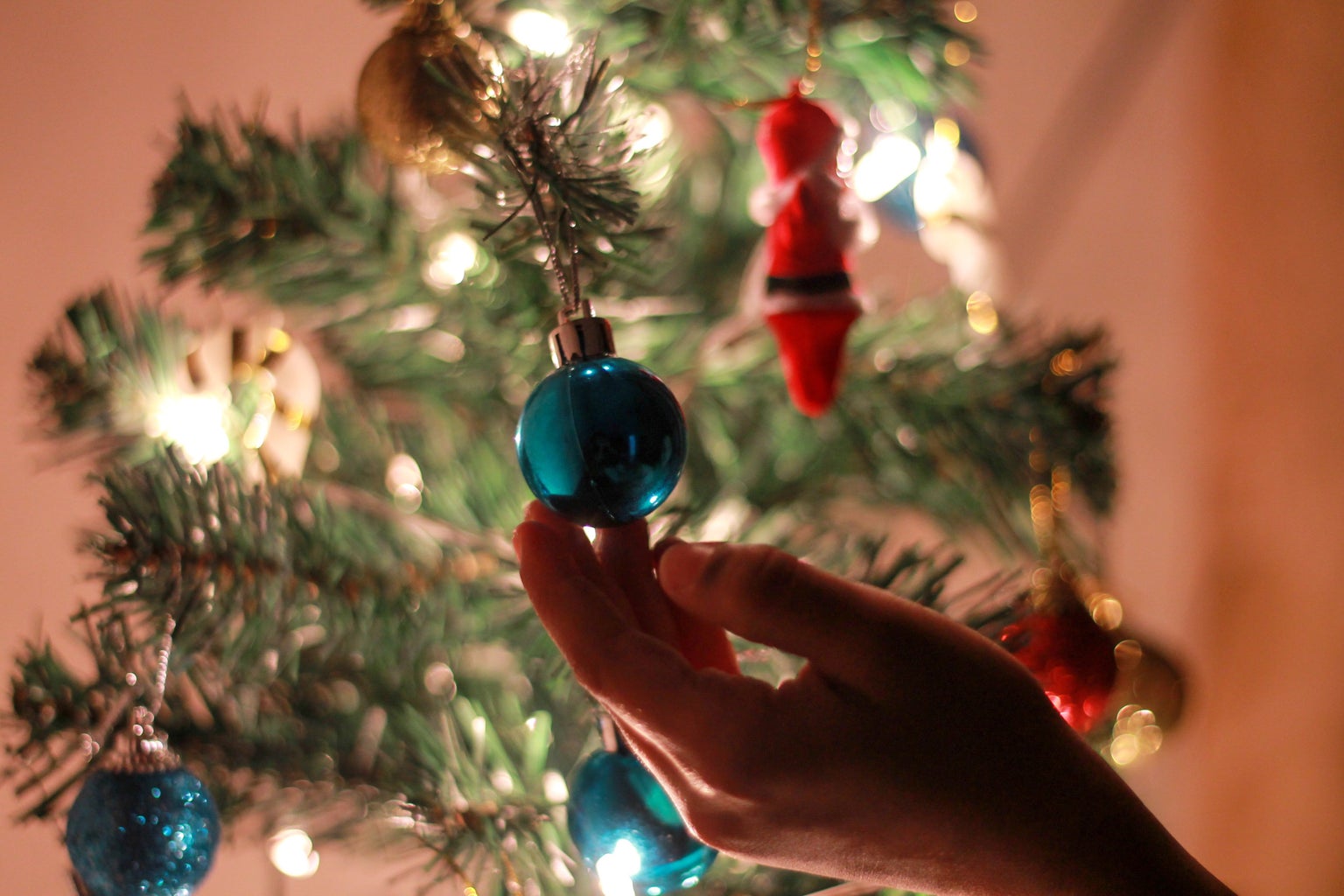My life took a turn for the worse when I was 11.
It was December 2015. I was sitting in sixth grade English and I just finished writing a letter. Who was the letter addressed to, you may ask? Santa.
That’s right. Up until sixth grade, I fully believed that a man with a beard flew around on a reindeer-led sleigh to deliver presents to all the children in the world. Despite not even having a chimney, I somehow believed that Santa snuck into my house to leave gifts under the tree. I even left cookies and milk out every Christmas Eve to fuel him up for his long journey around the globe.
I was signing my name on the bottom of my letter, when my classmate looked at my paper, laughed and said, “You know Santa isn’t real, right?”
I was shocked. Flabbergasted! What did he mean “Santa isn’t real?”
I was about to fight back with “Where’s your Christmas spirit?,” but as I looked around the room, I saw my classmates laughing at me and whispering to each other. Now put in the center of ridicule, second thoughts and questions about the legitimacy of Santa began to snowball in my head. And finally, it hit me: Santa isn’t real.
I grappled with this newfound knowledge. The inconsistencies in the Santa story could no longer be dissuaded by the classic “Where’s your Christmas spirit!” because the truth was, Christmas spirit can’t make Santa fly around the globe in one night. Christmas spirit can’t stuff Santa down the chimney to leave gifts under the tree. And Christmas spirit can’t eat the cookies and milk I left out every Christmas Eve. That was my dad. Not Santa.
I’m not going to sugarcoat it: I was upset upon discovering the truth. I was mad at my parents for keeping up the illusion for so long. Angry towards pop culture and the media for spreading lies. And above all else, I felt humiliated for how gullible I was for believing.
Christmas 2015, my first holiday after making that unfortunate discovery, felt different. It was still fun to eat dinner with my family, exchange gifts, wear matching pajamas and blast holiday music 24/7. Yet the Christmas spirit had worn off. At the young age of 11, I had never felt older.
A study conducted by Today’s Homeowner states that the average age Americans stop believing in Santa is 8.4. That means, on average, third graders across America are coming to the realization that the jolly old man with the big red hat is actually their not-so-jolly parents quietly wrapping presents in the middle of the night. And every now and then, there’s the sixth grade outlier who believes three years longer than the average.
Time went on and my heartbreak subsided. The embarrassment and shame I felt turned into a funny anecdote told during the holidays, a self-inflicted jab at my younger self in exchange for a few laughs. Before I knew it, eight years after my life-altering discovery, the holiday season had snuck up on me once again. Yet, as I write this from my decoration-less apartment, miles away from home and practically buried in finals, I find it very difficult to feel festive.
Much of Christmas is obviously fantastical — toy-making elves, a workshop in the North Pole, the “naughty or nice?” list. Yet the fantasy world of the North Pole allows a form of escape from everyday stressors. Time typically spent crying over grades or obsessing over a guy can be reallocated to sipping hot chocolate and hanging ornaments on a Christmas tree. While it’s not a solution to every single problem, the Christmas spirit provides comfort in dealing with a few.
Here’s the thing: deep down, I think I knew Santa wasn’t real during my youth. But there’s something so wonderful about the concept of Christmas spirit. The illusion, while deceptive, is powered by childlike joy. Basically: it’s fun. And who wouldn’t want to have fun, even if the evidence fails to back it up? I was able to grasp the complexity of self-awareness and chosen delusion at a young age. I happily set aside fact in favor of fiction and willingly opted into oblivion, making a conscious choice to believe in flying reindeer.
In a society that glamorizes growing up, it saddens me to know that for many eight-year-olds across the nation, the joy of Christmas has already started to dwindle. It’s heartbreaking to me how quick people are to ridicule and shame others for believing in something that brings them joy. Because life gets hard. And in the midst of stress, responsibilities and worry, I think all college students could really set aside logic and believe in the Christmas spirit right now.
So reconnect with your pre-eight (or in my case, pre-eleven) year-old-self and remember a time when your biggest worry was if Santa’s sleigh could make it through the night. Watch those Christmas movies, write that letter to Santa, and deck the halls with boughs and boughs of holly. As silly as it may sound, what’s the harm in leaving out some cookies this Christmas Eve? Who knows, maybe this year you’ll finally catch a glimpse of Santa.
(PS: Santa, if you’re reading this, all I want for Christmas are a new pair of Converse, a signed Taylor Swift CD and an A on my International Relations final. Thanks!)






